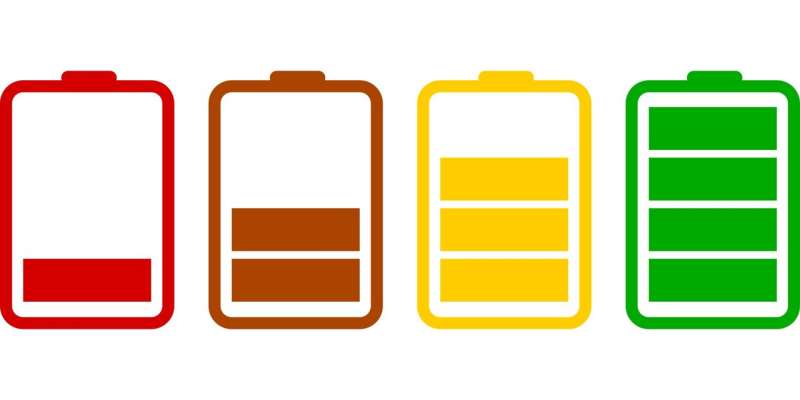
Monash University engineers have developed an ultra-fast charging lithium-sulfur (Li-S) battery, capable of powering long-haul EVs and commercial drones.
The novel batteries double the energy density of conventional lithium-ion batteries while being significantly lighter and more affordable. With further development, the technology could become a viable option for powering electric aircraft in the future.
Until now, lithium sulfur batteries weren’t commercially viable because their complex chemistry made them too slow to charge.
The research, a decade in the making and published in Advanced Energy Materials, marks a transformative step in renewable battery technology and sets a new benchmark for practical lithium-sulfur prototypes.
Maleesha Nishshanke is the paper’s first author and a Ph.D. candidate at the Monash Nanoscale Science and Engineering Lab (NSEL).
“Inspired by the chemistry of betadine, a common household antiseptic, we found a way to accelerate the charge and discharge rates, making them a viable battery option for real-world heavy-duty use,” she said.
Co-lead author of the paper Dr. Petar Jovanović believes the Li-S batteries could power commercial drones while bringing the vision of high-performance, sustainable electric aviation closer to reality.
“This represents a major breakthrough toward making Li-S a feasible option not just for long-haul EVs but particularly in industries like aviation and maritime that require rapid, reliable power that is crucially light-weighted,” Dr. Jovanović said.
In an electric car, the Li-S batteries could power an extra 1,000 kilometers on a single charge while cutting recharge time to a few hours.
“Imagine an electric vehicle that can travel from Melbourne to Sydney on a single charge or a smartphone that charges in minutes—we’re on the cusp of making this a reality,” Dr. Jovanović said.
Co-lead researcher and Director of the ARC Research Hub for Advanced Manufacturing with 2D Materials, Professor Mainak Majumder, said Li-S technology typically struggled to maintain high performance without degrading quickly but this game-changing battery could handle a lot of power being taken out at once without breaking down. The batteries are cheaper and store more energy.
“We’ve leveraged sulfur’s unique chemistry to make a battery that’s both safer and more efficient. With our new catalyst, we’ve overcome one of the last remaining barriers to commercialization—charging speed,” Professor Majumder said. “Our catalyst has significantly enhanced the C-rate performance of Li-S batteries, demonstrated in early proof-of-concept prototype cells.
“With commercial scaling and larger cell production, this technology could deliver energy densities up to 400 Wh/kg. This makes it well-suited for applications requiring dynamic performance, such as aviation, where batteries must handle high C-rates during take-off and efficiently switch to low C-rates during cruising. Li-S batteries are also a greener alternative to the materials used in traditional Li-ion batteries, which rely on limited and often environmentally harmful resources like cobalt.”
With the global lithium-sulfur battery market expected to be worth USD 209 million by 2028, Professor Majumder said Monash’s pioneering work could place Australia at the forefront of a rapidly expanding industry.
“This emerging industry has the potential to create jobs, drive economic growth and establish Australia as a key player in the market,” Professor Majumder said. “As demands for high-performance batteries soars, investment in cutting-edge technology will have long-term benefits for job creation and economic growth.”
The research team continues to innovate. Currently, they’re refining new additives that promise to speed up both charging and discharging times even more, along with methods that reduce the amount of lithium needed.
More information:
Maleesha M. Nishshanke et al, Role of Polymer‐Iodine Complexes on Solid‐Liquid Polysulfide Phase Transitions and Rate Capability of Lithium Sulfur Batteries, Advanced Energy Materials (2024). DOI: 10.1002/aenm.202403092
Citation:
Ultra-fast charging lithium-sulfur battery is capable of powering long-haul EVs and commercial drones (2024, November 25)
retrieved 25 November 2024
from https://techxplore.com/news/2024-11-ultra-fast-lithium-sulfur-battery.html
This document is subject to copyright. Apart from any fair dealing for the purpose of private study or research, no
part may be reproduced without the written permission. The content is provided for information purposes only.



